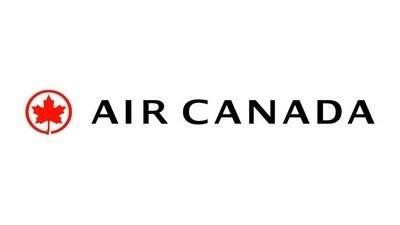Source: Air Canada
- Binding arbitration called for if ALPA contract negotiations fail
- Progress on key issues after 100 days of bargaining, but ALPA refuses to moderate excessive compensation demands
- Airline finalizing contingency plans for orderly suspension of flying with potentially 110,000 customers’ trips, tonnes of cargo disrupted each day
Air Canada said that if the airline’s contract negotiations with its pilot union fail, a government direction for binding arbitration will be necessary to avoid a major disruption of air travel that would upset the plans of 110,000 or more travellers a day and delay time-sensitive cargo shipments.
There have now been 100 days of meetings in contract negotiations between the company and the Air Line Pilots Association (ALPA), which represents 5,200 pilots at Air Canada and Air Canada Rouge. Tentative agreement has been reached on 70 per cent of the more than 1,000 proposed changes suggested by ALPA. Air Canada has offered unprecedent wage increases, which the union has refused, publicly citing U.S. based wage levels. The negotiations have stalled between the parties, who will be in a legal strike or lock-out position as early as September 18, 2024.
“With talks nearing an impasse and time for negotiation running out, the travel plans of hundreds of thousands of Canadians are hanging in the balance. We are taking all measures to mitigate any impact, but the reality is even a short work stoppage at Air Canada could, given the complexity of our business operating on a global scale, cause prolonged disruption for customers. So, while we remain committed to reaching a negotiated settlement with ALPA, the federal government should be prepared to intervene if talks fail before any travel disruption starts,” said Michael Rousseau, President and Chief Executive of Air Canada.
The parties have met for 100 days over the past 15 months, during which 1,110 issues have been subject to negotiation. Over this time, the parties have tentatively agreed to amend over 70 per cent of the articles to improve and modernize their collective agreement. These include a 30 per cent wage increase, which is unprecedented in Canada, significant improvements to the pilots’ defined benefit pension and health care plans, greater work-life balance provisions, and scheduling improvements that among other things give pilots more time at home. In return, Air Canada has sought no concessions.
On September 9, 2024, Air Canada said it is preparing contingency plans to suspend flying through an orderly wind down of operations. It would begin once a 72-hour strike or lock-out notice is issued, which can occur any time after 00:01 EDT on Sunday, September 15. Flights throughout the system would be progressively cancelled over three days, with a complete shutdown as early as 00:01 EDT on Wednesday, September 18. Services by Air Canada Express would not be affected.
- On June 9, 2023, ALPA elected to trigger bargaining one year early in its 10-year agreement, as it was allowed to do under the terms of that agreement if certain benchmarks related to fleet growth were not met.
- In January 2024, following 30 days of initial discussions, Air Canada and ALPA agreed on a protocol that created a framework for constructive bargaining between the parties with the help of an experienced mediator, William Kaplan. Progress was achieved through this process, but a complete agreement could not be reached.
- On June 1, 2024, ALPA notified Air Canada of its decision to terminate the voluntary bargaining protocol, during which the parties met for 43 days.
- On June 28, 2024, federal conciliators were appointed. Air Canada welcomed their assistance in helping achieve a new collective agreement.
- On August 22, 2024, ALPA announced the results of a strike vote, with pilots voting 98 per cent in favour of going on strike.
- On August 27, 2024, the 60-day conciliation period, during which the parties met on 24 days, ended without an agreement being reached. This started a 21-day, cool-off period, after which a strike or lock-out could be triggered with 72-hour advance notice.
- On September 3, 2024, the parties reconvened at the invitation of federal mediators and, at present, the parties continue to bargain.
Air Canada is not seeking immediate intervention. However, the carrier believes the Government of Canadashould prepare in the event talks conclude without an agreement to use its powers to direct binding interest arbitration under Section 107 of the Canada Labour Code before a work stoppage becomes effective. The stoppage and the orderly shutdown of operations would immediately affect the travel of 110,000 people a day and ground tonnes of essential air cargo. The airline believes recent government interventions in rail, port and airline labour disruptions in Canada provide a precedent. Moreover, the Code is designed for use to ensure industrial peace in cases where parties reach an impasse after meaningful collective bargaining has occurred.
For more information about Air Canada’s ongoing contract negotiations with the ALPA, please see https://media.aircanada.com/labour-relations

